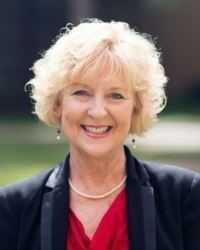Emotional Self-Care for Educational Therapists

Webinar Overview
Educators are familiar with this quote: “Teaching is the one profession that creates all other professions.”—Author Unknown. Because teaching is such a demanding job, educators can benefit greatly from learning about and practicing emotional self-care. Unfortunately, educators worry that taking care of themselves can lead to self-absorption and distract them from their students. However, despite the misleading title, emotional self-care is not at all about selfishness. In fact, practicing emotional self-care can be in the best interests of everyone you teach and serve. One of the most researched aspects of the teaching profession is stress and burnout. This webinar will explore several pathways/methods/means/approaches to maintaining educational therapists’ emotional wellness in order to avoid burnout and because you deserve a break today!
About Your Instructor:
Bridget Hughes, MEd, PCE
Bridget Hughes, MEd, PCE - A 35-year veteran and specialist in the field of learning differences, Mrs. Bridget R. Hughes currently serves as the Director of the NILD Center for Academic Success at Houston’s First Baptist Academy, has been an instructor for NILD since 1997. She also serves as Board Vice President for Elim Christian School in Houston where differences are celebrated. Bridget holds a B.S. in Elementary Education from Texas A & M; a M.Ed. in Special Education from Prairie View A&M University; Texas and ACSI Teaching Certifications; and is an NILD Professionally Certified Therapist as well as an IDA Structured Literacy Dyslexia Specialist. In 2012, Bridgetreceived the NILD “Grace Mutzabaugh Award” for providing excellence in service and leadership in the NILD organization, and for inspiring and helping other NILD educational therapists.
Subscribe and Save
Monthly webinars from top experts in the field of learning science. Subscriptions provide unlimited access to our webinar library.
One-time Purchase
The webinar will be added to your library so you can watch now or later.